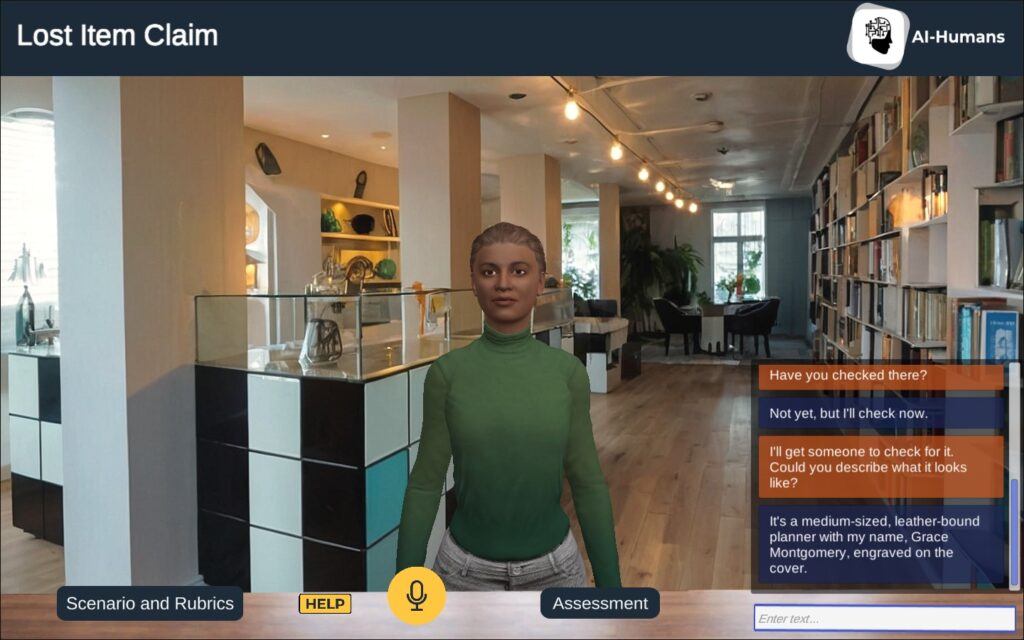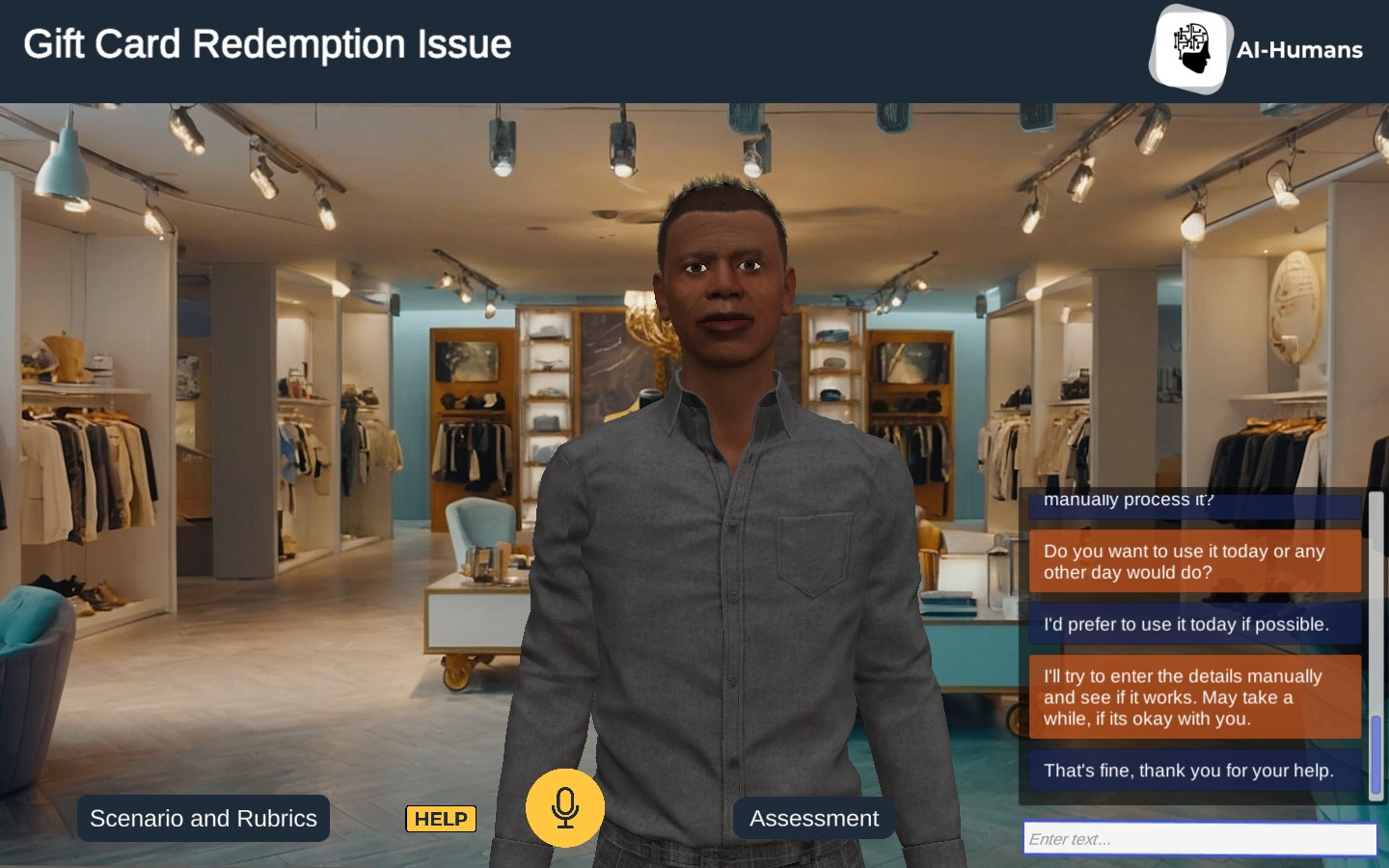For the retail industry to run smoothly, customer satisfaction and profit maximization are crucial factors. These are taken care of by the retail operations executives, the group of professionals who play a pivotal role in the retail industry. While the basic need to prosper remains unchanged, the landscape of the industry is witnessing changes. Roles are becoming increasingly complex and are calling for a fine blend of workplace soft skills and hard skills, along with a need to be digitally literate. Training needs are shifting from basic operations to encompassing a range of other skills. The need for continued upskilling has never been more important. With the coming of technologies like AI and VR, it is now becoming possible to train executives in realistic scenarios and provide them experiential training opportunities, helping them stay updated and prepared to face every new change in the retail scenario.
Retail industry and role of retail operations executives
It is not wrong to say that retail operations executives are the backbone of the industry. On their able shoulders lies the smooth functioning of the store, efficient inventory management, skilled staff management, customer service, and effective sales tracking. They also need to see to it that company compliance policies are being met along with ensuring positive customer experiences.
This need for operational efficiency and favorable customer experiences is emphasized by McKinsey & Company in a report titled Future of retail operations: Winning in a digital era. Due to digitalization, there is an increasing emphasis on customer experience and operational efficiency. Operation executives are now required to play a leading role in driving these transformations and ensuring positive customer experiences. They are no longer mere store managers taking care of inventory and in-store issues. They are now playing an important role in supply chain management, data analysis and the implementation of new technologies like automation to enhance store operations. While these shifts require them to be tech-savvy they also need to maintain healthy relations with fellow employees, customers and clients. This calls for effective interpersonal skills.
Importance of soft skills in retail operations jobs
According to a National Retail Foundation report, the key skills required in retail include a mix of technical and interpersonal skills. These include skills like leadership, initiative taking, planning, business operations, communication, coaching, business management, financial acumen etc.
While technical skills hold their own important place, the value of soft skills cannot be overlooked. True, AI can perform many tasks but there are certain skillsets that only humans can possess, and soft skills are one of those. In the retail industry, when it comes to tasks like managing teams, interacting with customers, resolving conflicts, and negotiating with clients, it requires human intervention with effective soft skills. Some of the key skills that can create an impact in retail operations include:
Communication: This skill is critical in all situations, be it handling internal matters or external. With effective communication skills, an operations manager can convey messages clearly to his co-workers, convey expectations and address customer and client concerns.
Negotiation: Negotiation skills come in handy in a number of conditions. One could be dealing with suppliers, managing staff issues, resolving conflicts, and handling complaints to arrive at mutually agreeable solutions.
Emotional intelligence: As an individual, a team-member and a team leader, emotional intelligence helps executives to build healthier and stronger connections. It helps them understand the requirements of others and work in collaboration towards better outcomes.
Time management: Time is limited and has to be used wisely to make the most of it. Many tasks are time-sensitive and may need immediate attention, while many must be done simultaneously. Having time management skills helps executives allocate, prioritize and complete critical tasks on time.
Empathy: The retail industry is customer centric. As an operations executive having an empathetic approach can help understand others’ problems and concerns better and work towards customer satisfaction. When a customer loses a personal item in a store, having an empathetic attitude can help an executive understand the customer’s worry regarding the matter.

Using conversational AI for retail operations training
An efficient operations executive is skilled in both hard and soft skills. While hard skills can be learned in institutes and get certified for them, soft skills fall more in the acquisition category. It is true that some people have a knack for these skills, but it is also true that with practice these can be developed and polished. Providing training in these skills is an effective way to upskill employees and provide them opportunities for growth and development.
One efficient way to practice soft skills is through role plays and simulations. However, conditions are not always favorable to give dedicated time to training in a super-busy retail industry. What can replace the real-world are AI-powered training scenarios, like the ones offered by AI-Humans. With the use of conversational AI, their solutions provide realistic interactions to practice close-to-reality conversations.
Simulated scenarios: Placing learners in simulated environments gives them a real world feel. It creates familiarity and provides them with practice sessions that would replicate real-world scenarios. For example, how does an executive handle a defective item complaint? Talking to an AI-powered customer can give insights into the types of concerns and issues that may be related to this matter.
Instant feedback: Practice sessions are designed to provide session-end feedback. Learners are presented with an analysis of their own performance which helps them identify their shortcomings and enhance their strengths.
Tailored training: AI-powered training scenarios are tailored to adapt to learners’ training trajectory. The path the course takes, and outcome are purely determined by the user’s performance. This personalization encourages participants to practice with greater interest and willingness.
On-going learning: Developing soft skills is an ongoing process. The kind of issues and incidents one may come across in a retail setting are endless and may be quite challenging at times. To ensure practice is provided to tackle all conceivable circumstances gets professionals to be prepared to face all kinds of situations with tact and confidence.
Scalable: Global retail chains are very common now and with it comes the need to train employees at all locations. Standardization can be brought about by providing standard training to all. Be it a handful of employees, a whole division at one location or a large number of employees scattered across the globe; AI-powered scenarios can be scaled to provide training in any given location, at any given time within much within affordable ranges.
The role of operations executives in the retail industry is crucial. With the introduction of new technology and shifts in business patterns their roles are taking on a complex turn. This makes it very critical to invest in retail operations training. Conversational AI offers are scalable, realistic, and experiential ways of training. Training solutions like those offered by AI-Humans can provide these executives with an effective way to upskill and take on the challenges witnessed by the retail industry.
AI-Humans from ELDC is a SaaS-based platform that enables trainers to develop AI-powered durable skills training solutions within minutes. While all technical aspects of creating these AI-powered scenarios have been taken care of by the team, trainers can devote all their attention towards giving shape to highly effective and relevant training and provide learners with engaging and immersive training opportunities. Practicing durable skills is the best way to learn and this is precisely what AI-Humans is providing.

